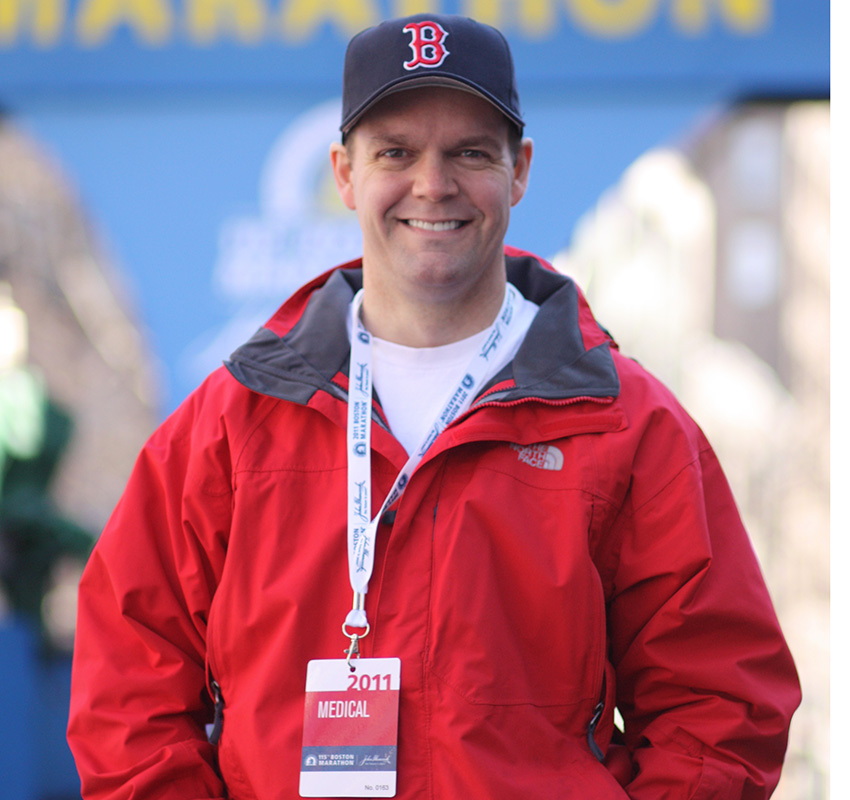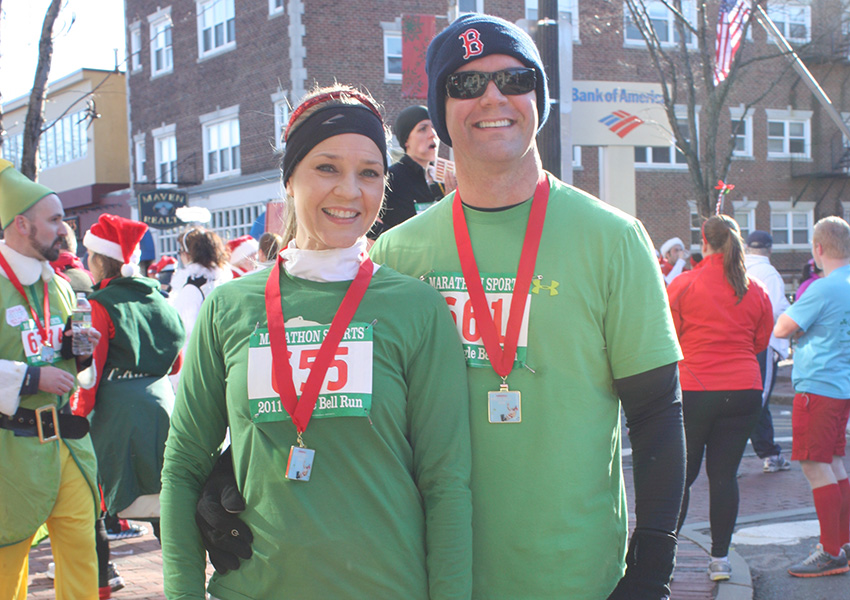Mentally Preparing for a Marathon

Dr. Brown working at the finish line of the 2011 Boston Marathon
Sometimes preparing mentally for an event is just as hard as the physical preparation. Dr. Jeffrey Brown is a Harvard Medical School professor and he’s been the psychologist for the Boston Marathon medical team since 2002. He’ll be at the finish line medical tent alongside physicians, nurses, physical therapists, and other volunteers who all work together to help and support the runners through the medical ailments that may come up during and after the race. Brown is also a runner so he understands what it takes to prepare for a race this big.
What are the usual mental roadblocks for runners?
Many roadblocks can occur mentally. Some of the more common are pre-race jitters, psychological pressures of pain, motivation in training, underdevelopment psychological skills, and experience.
How do you overcome those roadblocks during a race?
First, runners need to have psychological skills training and make that part of their training. It’s not something that can be quickly integrated. Some anxious runners will try new things mentally and physically, hoping they’ve covered all the bases. That’s not a good idea, because the routine of training helps make a race more predictable. Changing things at the last minute can create stress. Next, runners need to understand how their brains and bodies are connected. For example, mentally we respond to pain that expressed physically. Knowing that pain is the body’s way of alerting runners that something’s off helps runners have confidence in their decisions throughout the race because they better understand physical limits. Pain can be managed through dissociation for some runners, but it’s always advisable to listen to pain and have it evaluated medically so damage doesn’t occur.
How do runners stay motivated on a marathon course?
Some runners think about their goals and the reason they run. Others focus on different goals or themes at different miles. It’s very interesting to hear what runners think about when running. Some sing to themselves, others get major projects at work or school organized in their thinking, some simply daydream about relationships or romance, and others get in a zone that feels powerful and strong. Some runners feel bored and just tough it out.
What advice do you have for marathon runners that come to see you regarding their mental health?
Advice that’s given is unique to every runner and the circumstance they find themselves in. Some runners like to talk about the performance and what it means to them, while other runners are struggling with psychiatric symptoms secondary to a medical issue that develops over the course. I write a lot about cognitive behavioral psychology, so my interventions are rooted in that theory. We either work on actual behavioral strategy where a runner tries something new physically or we work on thinking, beliefs, and expectations.
How do marathon runners stay focused?
Marathoners may not stay focused the who race because they would tire more. Many let their attention drift until they need to focus more when negotiating a pack of runners, passing someone, or sprinting toward the finish. When those times occur, a runner’s attention likely shifts to a narrow focus.When running in the wide open space, enjoying the scenery, focus is much more broad and requires less mental energy.
What tips, tricks, and/or techniques do you recommend for marathon runners?
Really, the strategies are limitless. One piece of advice that’s integral for all runners, though, is to be sure to have fun. Running is emotional and joy, happiness, and satisfaction should be part of what we experience. Our brains are amazing gadgets that help us perform well and enjoy life. Runners are exceptionally gifted with useful, productive brains.

Dr. Jeffrey Brown and his wife after the Jingle Bell 5K in Davis Square.


